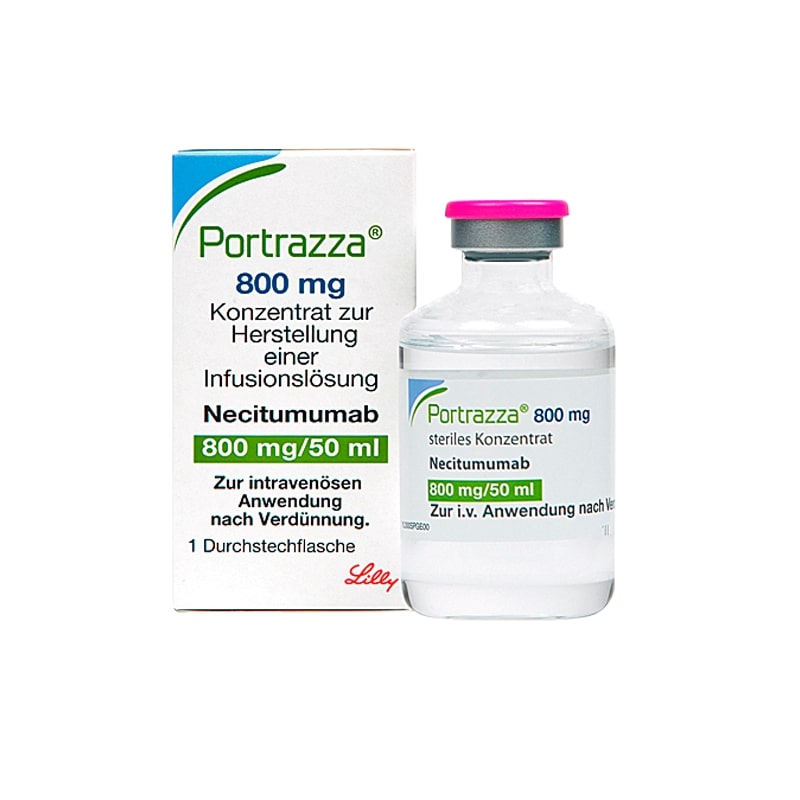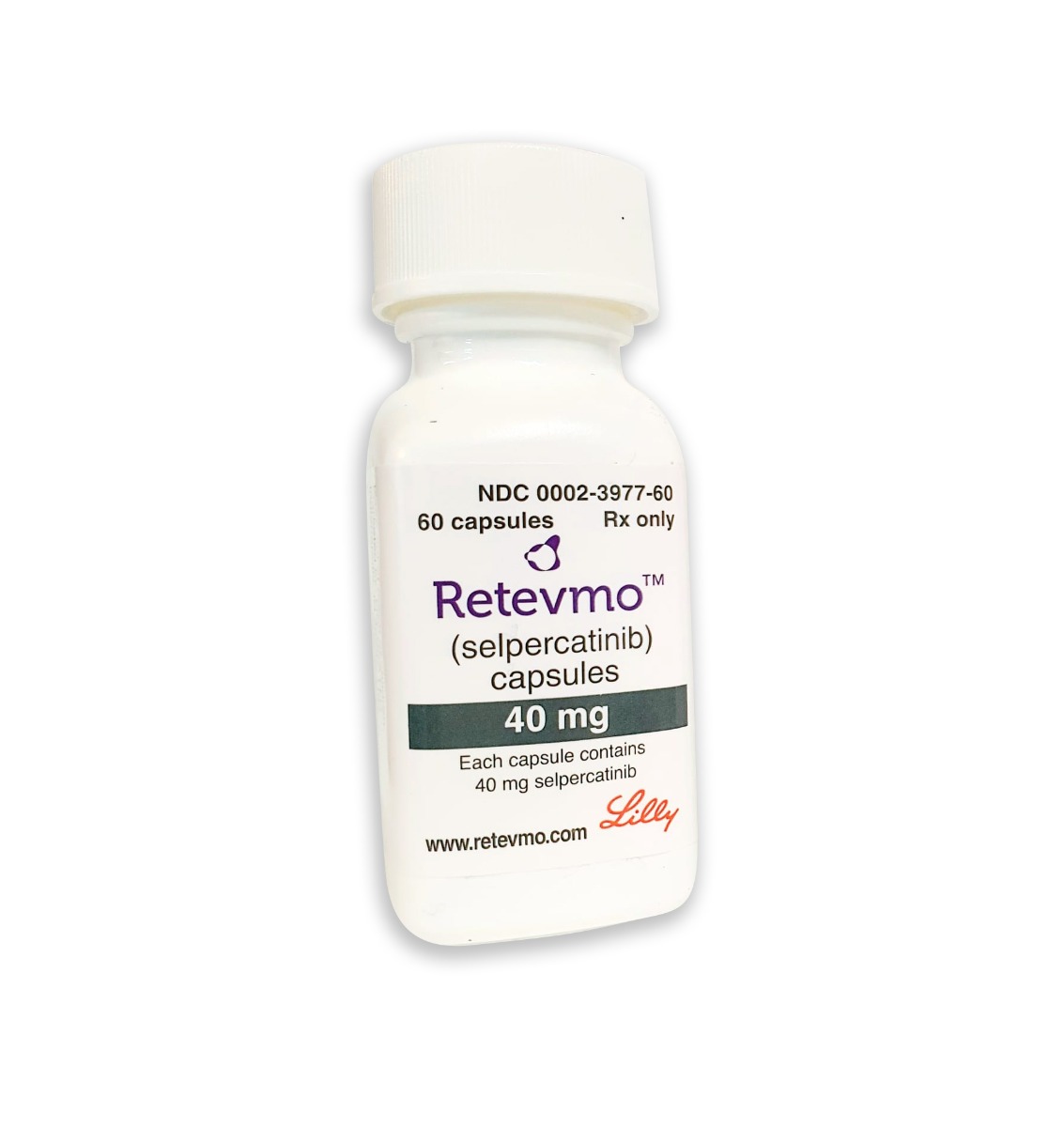Portrazza (necitumumab) vs Retsevmo (selpercatinib)
Portrazza (necitumumab) vs Retsevmo (selpercatinib)
Portrazza (necitumumab) is a monoclonal antibody designed to target and block the epidermal growth factor receptor (EGFR), which is often overexpressed in certain types of non-small cell lung cancer (NSCLC). It is specifically approved for use in combination with chemotherapy for the first-line treatment of patients with metastatic squamous NSCLC. In contrast, Retsevmo (selpercatinib) is a kinase inhibitor indicated for the treatment of patients with lung and thyroid cancers that are RET fusion-positive, RET-mutant medullary thyroid cancer, and RET-mutant thyroid cancer who require systemic therapy and who are radioactive iodine-refractory (if radioactive iodine is appropriate). The choice between these two medications would depend on the specific genetic characteristics of the cancer; therefore, a patient should consult with their oncologist to determine which drug is appropriate based on the molecular profile of their tumor.
Difference between Portrazza and Retsevmo
| Metric | Portrazza (necitumumab) | Retsevmo (selpercatinib) |
|---|---|---|
| Generic name | necitumumab | selpercatinib |
| Indications | Squamous non-small cell lung cancer (NSCLC) | RET-altered thyroid cancers and non-small cell lung cancer |
| Mechanism of action | Epidermal growth factor receptor (EGFR) antagonist | RET kinase inhibitor |
| Brand names | Portrazza | Retsevmo |
| Administrative route | Intravenous infusion | Oral |
| Side effects | Rash, magnesium deficiency, venous thromboembolism | Increased liver enzymes, hypertension, dry mouth |
| Contraindications | None known | None known |
| Drug class | Monoclonal antibody | Tyrosine kinase inhibitor |
| Manufacturer | Eli Lilly and Company | Eli Lilly and Company |
Efficacy
Efficacy of Portrazza (necitumumab) in Lung Cancer
Portrazza (necitumumab) is a monoclonal antibody that targets the epidermal growth factor receptor (EGFR), which is often overexpressed in certain types of lung cancer. It is specifically indicated for use in combination with gemcitabine and cisplatin for the first-line treatment of patients with metastatic squamous non-small cell lung cancer (NSCLC). Clinical trials have demonstrated that the addition of necitumumab to chemotherapy can lead to an improvement in overall survival compared to chemotherapy alone. In a pivotal phase III study, patients treated with necitumumab plus chemotherapy had a median overall survival of 11.5 months, compared to 9.9 months for those receiving chemotherapy alone. However, it is important to note that Portrazza is not indicated for treatment of patients with non-squamous NSCLC.
Efficacy of Retsevmo (selpercatinib) in Lung Cancer
Retsevmo (selpercatinib) is a kinase inhibitor that has shown efficacy in the treatment of lung cancer, specifically for patients with NSCLC whose tumors have a rearrangement of the RET (rearranged during transfection) gene. Selpercatinib has been granted accelerated approval by the FDA based on the overall response rate and duration of response observed in clinical trials. In a multicenter trial involving patients with RET fusion-positive NSCLC who were previously treated with platinum chemotherapy, the overall response rate was 64%, with 81% of responses lasting at least six months. For treatment-naive patients, the response rate was even higher at 85%. This data suggests that selpercatinib is highly effective in RET fusion-positive NSCLC.
It is important for healthcare providers to identify the specific genetic alterations in a patient’s lung cancer to determine the most appropriate treatment regimen. Both Portrazza and Retsevmo represent targeted therapies that exploit the molecular characteristics of certain lung cancer subtypes to improve patient outcomes. While these medications have shown promise in their respective indications, ongoing research and clinical trials continue to refine their use and evaluate their long-term efficacy and safety profiles.
When considering these treatments, it is critical to weigh the potential benefits against the possible side effects and to discuss these factors with patients. As with all cancer therapies, the decision to use Portrazza or Retsevmo should be made on a case-by-case basis, taking into account the individual patient's type of lung cancer, genetic markers, previous treatments, and overall health status. In conclusion, both Portrazza and Retsevmo have demonstrated efficacy in the treatment of certain types of lung cancer and represent important options in the oncologist’s arsenal against this challenging disease.
Regulatory Agency Approvals
Portrazza
-
European Medical Agency (EMA), European Union

-
Food and Drug Administration (FDA), USA

-
Health Canada

Retsevmo
-
European Medical Agency (EMA), European Union

-
Food and Drug Administration (FDA), USA

Access Portrazza or Retsevmo today
If Portrazza or Retsevmo are not approved or available in your country (e.g. due to supply issues), you can access them via Everyone.org.
How it works

Make an enquiry
Choose the medicine you want to buy, answer a couple of questions, and upload your prescription to speed things up. We’ll get back to you within 24 hours.


Make an enquiry
Choose the medicine you want to buy, answer a couple of questions, and upload your prescription to speed things up. We’ll get back to you within 24 hours.


Breeze through the paperwork
We'll guide you through the required documents for importing unapproved medicine, ensuring you have all the necessary information.


Get a personalized quote
We’ll prepare a quote for you, including medicine costs and any shipping, administrative, or import fees that may apply.


Receive your medicine
Accept the quote and we’ll handle the rest - sourcing and safely delivering your medicine.

Some text on this page has been automatically generated. Speak to your physician before you start a new treatment or medication.
Let's talk
If you have any questions, call us or send us a message through WhatsApp or email:
Contact us




